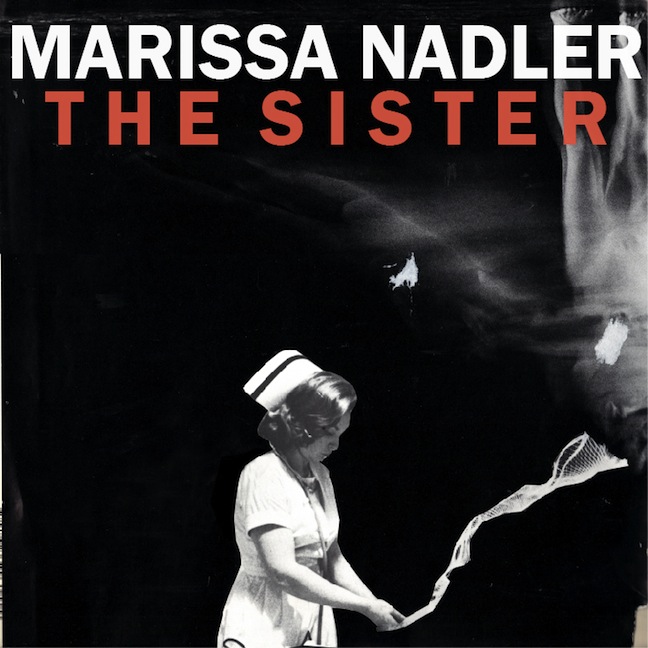Being a companion album for Marissa Nadler’s self-titled album from last year, many might assume The Sister would sound much the same. And in some respects, this assumption is correct — but only in the way all Marissa Nadler records have an inherent similarity to each other as they centre around Nadler and her guitar. The Sister, though sparser and shorter, turns out to be that bit darker than the previous record, if not perhaps a consequence of its simpler production that puts an emphasis on Nadler. The songs here blossom and unfurl carefully, but the additional instrumentation can slip by completely unnoticed, whereas in the past it has put Nadler in completely new light (“Puppet Master” from Marissa Nadler, the synthetic, chilly gleam on 2009’s Little Hells). This is an album that puts focus on Nadler’s performance once again; the spotlight is still on her, but the colour of the light seems to have been altered.
Some of the content on The Sister may well sound familiar to Nadler fans, particularly those who contributed to her Kickstarter campaign that helped get her self-titled album recorded and released independently. As a thank you to those fans she gave them a short four song EP called Rain Arrangement, which would turn out to hold three of the eight songs on The Sister. Although they remain pretty much unchanged from when they were first heard, their new context has a curious effect: piano-led “Love Again, There is A Fire” still has a mysterious allure, but it doesn’t sound quite as stunning as it did upon first listen; “To A Road, Love” on the other hand is positively hypnotizing, lulling the listener with gentle guitar arpeggios and a calming wordless chorus.
The surrounding material is all solid, if not to be ranked as some of her best stuff. “The Wrecking Ball Company” builds step by step, starting out with a solo performance before ending on haunting wails, drawing the listener in like some bewitching Siren. “Christine” and “Apostle” are affecting songs that take a little time to fully sink in, but are worth spending time with, while “In a Little Town” has Nadler recalling her school days, sounding both like she’s yearning after those days past, and also happy she’s moved on. As said, these songs focus on Nadler and her guitar, but there’s still plenty to listen out for; the additional instruments are dialled back compared to her last album, but this only makes their appearances more captivating and effective for their subtlety. Ghostly voices and a few lightly simmering synths emerge during the latter half of “Christine,” “Constantine” makes effective use of a couple of bangs of a drum, driving home the songs lyrical motif, while some shimmering mandolin work helps “In a Little Town” open up as a male voice sings behind Nadler’s, like a voice from the past.
Although there was no mistaking Nadler’s last album as her own work, it still felt fresh, inviting and captivating because it did try some new textures and sounds out, and with Little Hells preceding that, there could well be an expectation for Nadler to keep trying new things with each release. The Sister, however, shows that she’s doesn’t need to reinvent herself in any kind of way, or dabble in anything too different to create a good, if not great album. It reminds of us of why we were so captivated by her to begin with: on “Christine” her voice reverberates in its usual way, but now she’s managed to find that perfect balance between confidence and heartbroken fragility. And considering she’s got a following that’ll help fund and support her work so she can release it independently, Nadler seems to be maturing as an artist at just the right pace. From here she can do whatever she wishes with her sound, and if that means another pairing of albums like Marissa Nadler and The Sister, or even just more records with content as strong as that on the latter, then that light will keep shining on Nadler for years to come.

